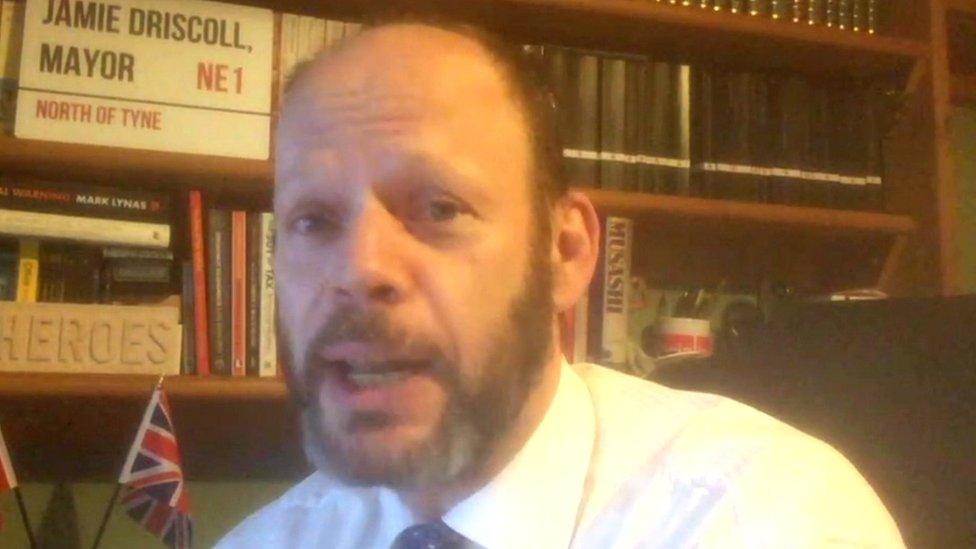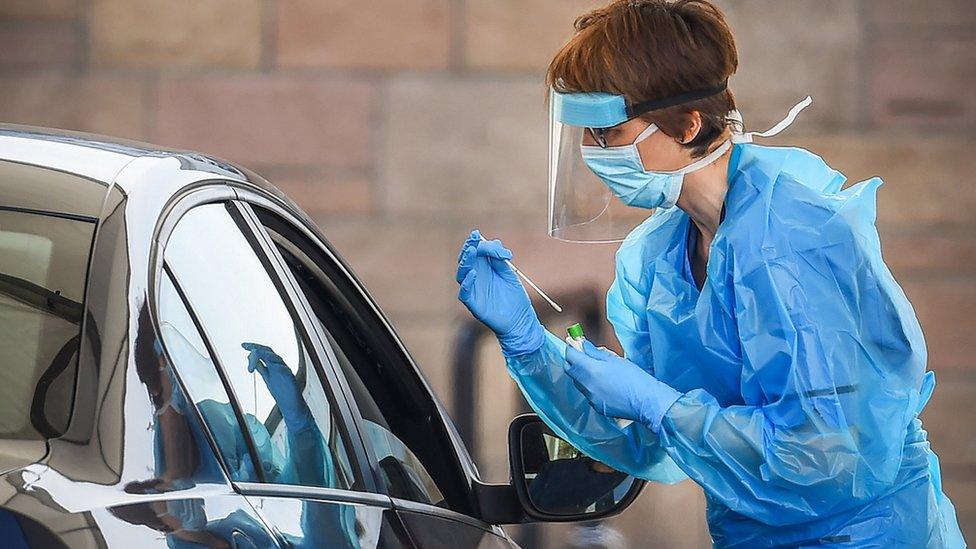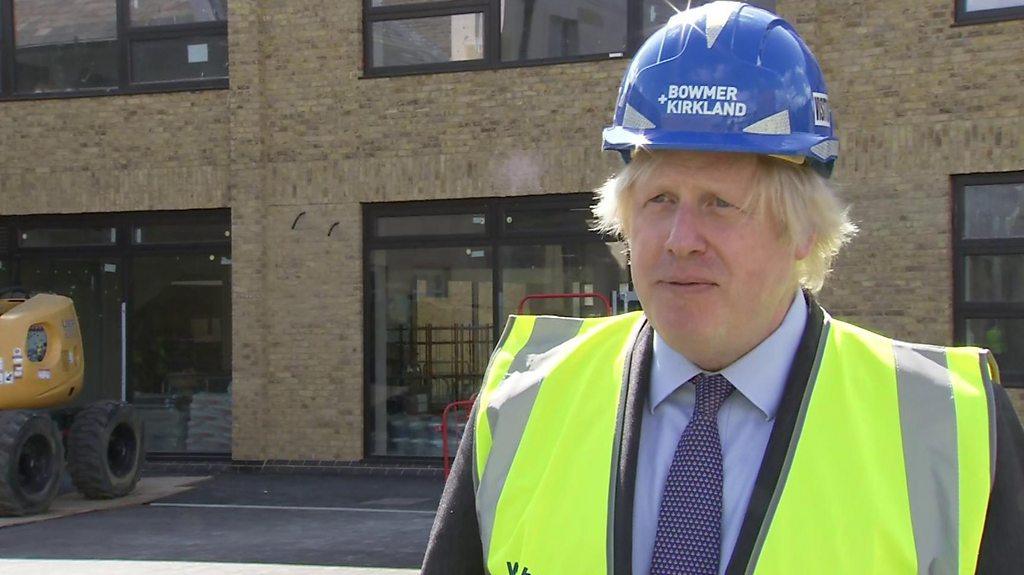North of Tyne Mayor criticises 'whack-a-mole' approach
- Published

Jamie Driscoll also called for extra support for areas in Tier Two
The North of Tyne Mayor has described restrictions aimed at halting the spread of Covid-19 as "whack-a-mole without knowing where the moles are".
Jamie Driscoll said although Boris Johnson initially claimed the test and trace system would find the virus "where it pops up", it is not working.
He called for resources to operate a "more efficient system".
The government said its system was "one of the best in the world" and "working hard to break chains of transmission".
Speaking on BBC Breakfast, Mr Driscoll said: "Boris earlier this year said 'we'll treat this virus like whack-a-mole - the test and trace system will find it where it pops up', but that's not happening because the test and trace system isn't good enough.
"So extra restrictions are like whack-a-mole without knowing where the moles are."
BBC analysis of government figures showed in the week to 9 October, Newcastle at 500 cases per 100,000 people, North Tyneside at 271 cases, and Northumberland at 187.
The North East is currently in Tier Two of the lockdown system, which means no mixing between different households indoors, and the rule of six only continuing outdoors.

The government has said testing capacity is increasing
Mr Driscoll said: "What we know is that almost all the spike in the North East is around the student population and that's being dealt with.
"In the wider community in many places the transmission rate is falling, and we know that loads of businesses are operating really safely. So why close those?
"What we really need are the resources to operate a really effective test and trace system and that's not going to happen unless we are in Tier Three [the most severe restrictions], by which time of course it's too late.
"So what kind of plan is it that says 'you're not getting any support that helps stop the virus getting out of control unless it's already out of control'?"
Communities Secretary Robert Jenrick said the three-tiered system, gave "a very clear and consistent framework across the whole country, so people will be able to understand approximately what the rate of infections is in their own area and what the rules are accordingly".
- Published1 July 2022

- Published28 September 2020

- Published29 June 2020
